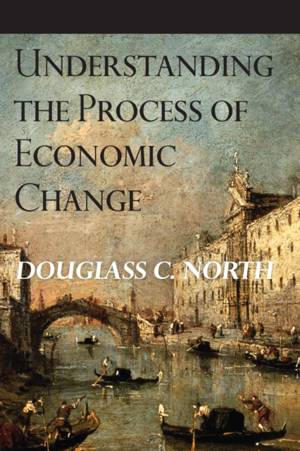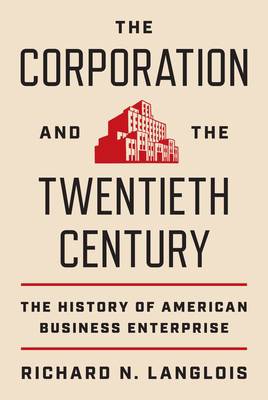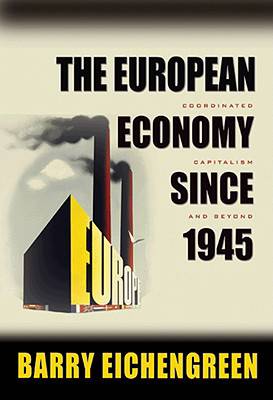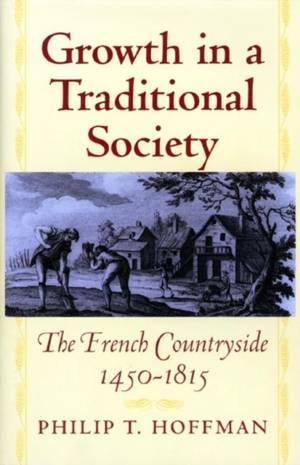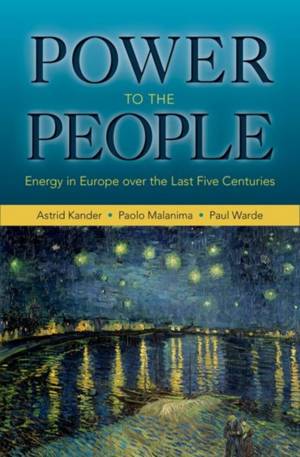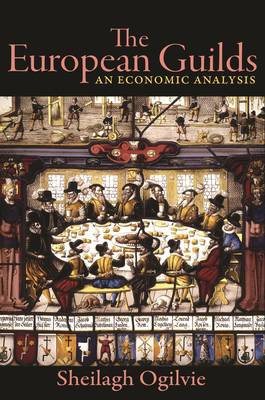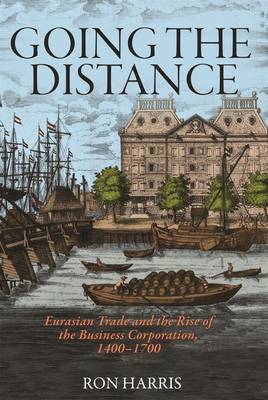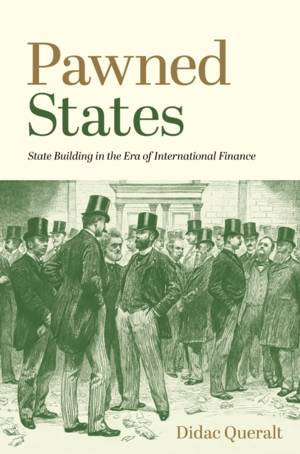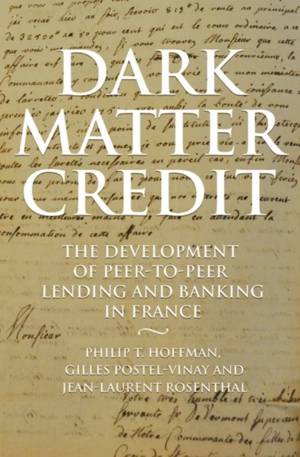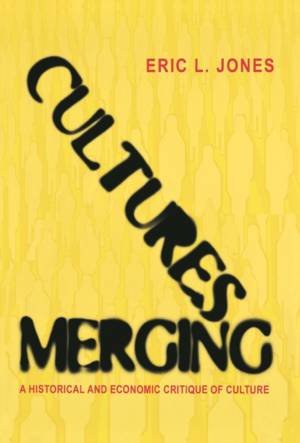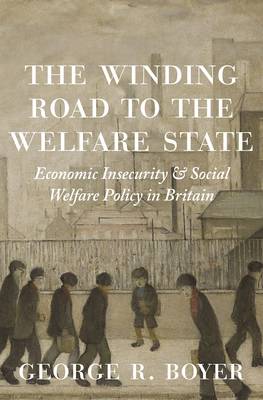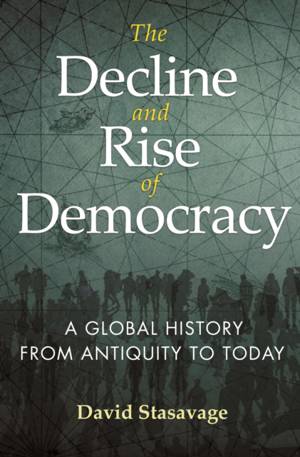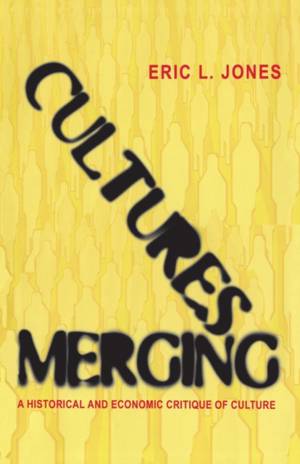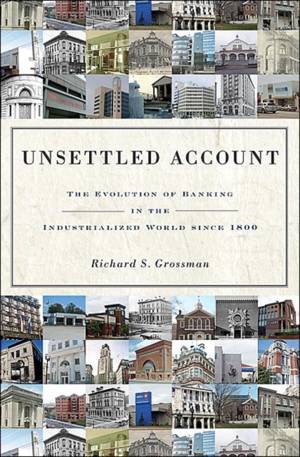
Je cadeautjes zeker op tijd in huis hebben voor de feestdagen? Kom langs in onze winkels en vind het perfecte geschenk!
- Afhalen na 1 uur in een winkel met voorraad
- Gratis thuislevering in België vanaf € 30
- Ruim aanbod met 7 miljoen producten
Je cadeautjes zeker op tijd in huis hebben voor de feestdagen? Kom langs in onze winkels en vind het perfecte geschenk!
- Afhalen na 1 uur in een winkel met voorraad
- Gratis thuislevering in België vanaf € 30
- Ruim aanbod met 7 miljoen producten
Zoeken
Reeksen: boeken uit de reeks Princeton Economic History of the Western World
-
Brazil in Transition
Lee J Alston, Marcus André Melo, Bernardo Mueller, Carlos Pereira
- Hardcover | Engels | Princeton Economic History of the Western World | nr. 64
- Brazil is the world's sixth-largest economy, and for the first three-quarters of the twentieth century was one of the fastest-growing countries in the... Lees meer
€ 84,95Levering 2 à 3 weken€ 84,95Levering 2 à 3 weken -
War, Wine, and Taxes
John V C Nye
- Paperback | Engels | Princeton Economic History of the Western World | nr. 20
- In War, Wine, and Taxes , John Nye debunks the myth that Britain was a free-trade nation during and after the industrial revolution, by revealing how ... Lees meer
€ 56,45Levering 2 à 3 weken€ 56,45Levering 2 à 3 weken -
The Chosen Few
Maristella Botticini, Zvi Eckstein
- Paperback | Engels | Princeton Economic History of the Western World | nr. 42
- How the Jewish people went from farmers to merchants In 70 CE, the Jews were an agrarian and illiterate people living mostly in the Land of Israel and... Lees meer
€ 31,45Levering 1 à 2 weken€ 31,45Levering 1 à 2 weken -
Understanding the Process of Economic Change
Douglass C North
- Paperback | Engels | Princeton Economic History of the Western World | nr. 32
- In this landmark work, a Nobel Prize-winning economist develops a new way of understanding the process by which economies change. Douglass North inspi... Lees meer
€ 47,45Levering 2 à 3 weken€ 47,45Levering 2 à 3 weken -
The Mystery of the Kibbutz
Ran Abramitzky
- Paperback | Engels | Princeton Economic History of the Western World | nr. 73
- How the kibbutz movement thrived despite its inherent economic contradictions and why it eventually declined The kibbutz is a social experiment in col... Lees meer
€ 48,45Levering 2 à 3 weken€ 48,45Levering 2 à 3 weken -
The Corporation and the Twentieth Century
Richard N Langlois
- Hardcover | Engels | Princeton Economic History of the Western World | nr. 119
- A definitive reframing of the economic, institutional, and intellectual history of the managerial era The twentieth century was the managerial century... Lees meer
€ 84,95Levering 2 à 3 weken€ 84,95Levering 2 à 3 weken -
The European Economy Since 1945
Barry Eichengreen
- Paperback | Engels | Princeton Economic History of the Western World | nr. 23
- In 1945, many Europeans still heated with coal, cooled their food with ice, and lacked indoor plumbing. Today, things could hardly be more different. ... Lees meer
€ 59,45Levering 1 à 2 weken€ 59,45Levering 1 à 2 weken -
Growth in a Traditional Society
Philip T Hoffman
- Paperback | Engels | Princeton Economic History of the Western World | nr. 7
- Philip Hoffman shatters the widespread myth that traditional agricultural societies in early modern Europe were socially and economically stagnant and... Lees meer
€ 117,95Levering 2 à 3 weken€ 117,95Levering 2 à 3 weken -
Power to the People
Astrid Kander, Paolo Malanima, Paul Warde
- Hardcover | Engels | Princeton Economic History of the Western World | nr. 46
- Power to the People examines the varied but interconnected relationships between energy consumption and economic development in Europe over the last f... Lees meer
€ 93,45Levering 2 à 3 weken€ 93,45Levering 2 à 3 weken -
The European Guilds
Sheilagh Ogilvie
- Hardcover | Engels | Princeton Economic History of the Western World | nr. 78
- A comprehensive analysis of European craft guilds through eight centuries of economic history Guilds ruled many crafts and trades from the Middle Ages... Lees meer
€ 62,45Levering 1 à 2 weken€ 62,45Levering 1 à 2 weken -
Lending to the Borrower from Hell
Mauricio Drelichman, Hans-Joachim Voth
- Paperback | Engels | Princeton Economic History of the Western World | nr. 47
- What the loans and defaults of a sixteenth-century Spanish king can tell us about sovereign debt today Why do lenders time and again loan money to sov... Lees meer
€ 54,95Levering 2 à 3 weken€ 54,95Levering 2 à 3 weken -
Going the Distance
Ron Harris
- Hardcover | Engels | Princeton Economic History of the Western World | nr. 82
- A historical look at the early evolution of global trade and how this led to the creation and dominance of the European business corporation Before th... Lees meer
€ 89,95Levering 2 à 3 weken€ 89,95Levering 2 à 3 weken -
Fragile by Design
Charles W Calomiris, Stephen Haber
- Paperback | Engels | Princeton Economic History of the Western World | nr. 50
- Why stable banking systems are so rare Why are banking systems unstable in so many countries--but not in others? The United States has had twelve syst... Lees meer
€ 41,95Levering 2 à 3 weken€ 41,95Levering 2 à 3 weken -
Pawned States
Didac Queralt
- Paperback | Engels | Princeton Economic History of the Western World | nr. 108
- How foreign lending weakens emerging nations In the nineteenth century, many developing countries turned to the credit houses of Europe for sovereign ... Lees meer
€ 50,45Levering 2 à 3 weken€ 50,45Levering 2 à 3 weken -
States of Credit
David Stasavage
- Paperback | Engels | Princeton Economic History of the Western World | nr. 35
- States of Credit provides the first comprehensive look at the joint development of representative assemblies and public borrowing in Europe during the... Lees meer
€ 49,95Levering 2 à 3 weken€ 49,95Levering 2 à 3 weken -
Dark Matter Credit
Philip T Hoffman, Gilles Postel-Vinay, Jean-Laurent Rosenthal
- Hardcover | Engels | Princeton Economic History of the Western World | nr. 76
- How a vast network of shadow credit financed European growth long before the advent of banking Prevailing wisdom dictates that, without banks, countri... Lees meer
€ 79,95Levering 2 à 3 weken€ 79,95Levering 2 à 3 weken -
Cultures Merging
Eric L Jones
- Hardcover | Engels | Princeton Economic History of the Western World | nr. 18
- "Economists agree about many things--contrary to popular opinion--but the majority agree about culture only in the sense that they no longer give it m... Lees meer
€ 123,95Levering 2 à 3 weken€ 123,95Levering 2 à 3 weken -
Quarter Notes and Bank Notes
F M Scherer
- Paperback | Engels | Princeton Economic History of the Western World | nr. 40
- In 1700, most composers were employees of noble courts or the church. But by the nineteenth century, Chopin, Schumann, Brahms, Verdi, and many others ... Lees meer
€ 59,95Levering 2 à 3 weken€ 59,95Levering 2 à 3 weken -
The Winding Road to the Welfare State
George R Boyer
- Paperback | Engels | Princeton Economic History of the Western World | nr. 77
- How did Britain transform itself from a nation of workhouses to one that became a model for the modern welfare state? The Winding Road to the Welfare ... Lees meer
€ 62,95Levering 2 à 3 weken€ 62,95Levering 2 à 3 weken -
The Decline and Rise of Democracy
David Stasavage
- Paperback | Engels | Princeton Economic History of the Western World | nr. 80
- "One of the most important books on political regimes written in a generation." --Steven Levitsky, New York Times -bestselling author of How Democraci... Lees meer
€ 43,95Levering 1 à 2 weken€ 43,95Levering 1 à 2 weken -
Cultures Merging
Eric L Jones
- Paperback | Engels | Princeton Economic History of the Western World | nr. 18
- "Economists agree about many things--contrary to popular opinion--but the majority agree about culture only in the sense that they no longer give it m... Lees meer
€ 59,95Levering 2 à 3 weken€ 59,95Levering 2 à 3 weken -
Credit Nation
Claire Priest
- Paperback | Engels | Princeton Economic History of the Western World | nr. 81
- How American colonists laid the foundations of American capitalism with an economy built on credit Even before the United States became a country, law... Lees meer
€ 32,45Levering 2 à 3 weken€ 32,45Levering 2 à 3 weken -
The Israeli Economy
Joseph Zeira
- Paperback | Engels | Princeton Economic History of the Western World
- An authoritative economic history of Israel from its founding to the present In 1922, there were ninety thousand Jews in Palestine, a small country in... Lees meer
€ 38,95Pre-order nu, verschijnt op 07/04/2026€ 38,95Pre-order nu, verschijnt op 07/04/2026 -
Unsettled Account
Richard S Grossman
- Hardcover | Engels | Princeton Economic History of the Western World | nr. 33
- A sweeping look at the evolution of commercial banks over the past two centuries Commercial banks are among the oldest and most familiar financial ins... Lees meer
€ 115,45Levering 2 à 3 weken€ 115,45Levering 2 à 3 weken










